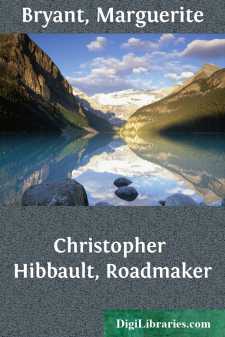Categories
- Antiques & Collectibles 13
- Architecture 36
- Art 48
- Bibles 22
- Biography & Autobiography 813
- Body, Mind & Spirit 142
- Business & Economics 28
- Children's Books 15
- Children's Fiction 12
- Computers 4
- Cooking 94
- Crafts & Hobbies 4
- Drama 346
- Education 46
- Family & Relationships 57
- Fiction 11828
- Games 19
- Gardening 17
- Health & Fitness 34
- History 1377
- House & Home 1
- Humor 147
- Juvenile Fiction 1873
- Juvenile Nonfiction 202
- Language Arts & Disciplines 88
- Law 16
- Literary Collections 686
- Literary Criticism 179
- Mathematics 13
- Medical 41
- Music 40
- Nature 179
- Non-Classifiable 1768
- Performing Arts 7
- Periodicals 1453
- Philosophy 64
- Photography 2
- Poetry 896
- Political Science 203
- Psychology 42
- Reference 154
- Religion 513
- Science 126
- Self-Help 84
- Social Science 81
- Sports & Recreation 34
- Study Aids 3
- Technology & Engineering 59
- Transportation 23
- Travel 463
- True Crime 29
Christopher Hibbault, Roadmaker
Description:
Excerpt
CHAPTER I
It was a hot July day, set in a sky of unruffled blue, with sharp shadows across road and field, and a wind that had little coolness in it playing languidly over the downland. The long white dusty road kept its undeviating course eastward over hill and dale, through hamlet and town, till it was swallowed up in the mesh-work of ways round London, sixty-three miles away according to the mile-stone by which a certain small boy clad in workhouse garb was loitering. He had read the inscription many times and parcelled out the sixty-three miles into various days’ journeys, but never succeeded in bringing it within divisionable distance of the few pennies which found their way into his pockets. His precocious little head carried within it too bitter memories of hungry days, and too many impressions of the shifts and contrivances by which fortune’s votaries bamboozle from that fickle Goddess a meagre living, to adventure on the journey unprepared. Moreover, Mr. and Mrs. Moss of the Whitmansworth Union were not unkind, and meals were regular, so he did not run away from the house that had opened its doors to him and an exhausted mother six months ago. But he still dreamt of London as the desideratum of his fondest hopes, and that, in spite of a black terror crouching there and carefully nurtured by the poor mother in the days of their wanderings. He saw it all through a haze of people and experiences, of friends and foes, and it was the Place of Liberty.
Therefore, when escape was possible from the somewhat easy rule of the Union, he hurried away to the mile-stone on the “Great Road,” as it was called about here. The stone with its clear distinct black lettering, seemed to bring him nearer London, and he would spend his time contentedly flinging pebbles into the river of dust at his feet, or planning out in his active little mind what he would do when old Granny Jane’s prophecy came true.
There was a wide strip of turf on each side of the road bejewelled with poppies and daisies, matted with yellow and white bedstraws, carpeted with clovers, and over all lay a coating of fine chalky dust, legacy of passing cart and carriage.
The boy was very hot and very dusty, and a little sleepy. He lay on his back drumming his heels on the turf and watching an exuberant lark tower up into the sky above him. He was not unmindful of the lark’s song, but he vaguely wondered if a well-thrown stone could travel as far as the dark mounting speck.
“It’s a year ago I am sure since that old woman told me my fortune,” he said, suddenly sitting up. “I wonder if it will come true. Mother said it was nonsense.”
It was a lonely stretch of road. The mile-stone was on the summit of a rise and the ground sloped away on his right to a reach of green water-meadow through which a chalky trout-stream wandered, and the red roof of an old mill showed through a group of silvery poplars and willows. On the other side of the road were undulating fields that dwindled from sparse cultivation to bare down-land....


